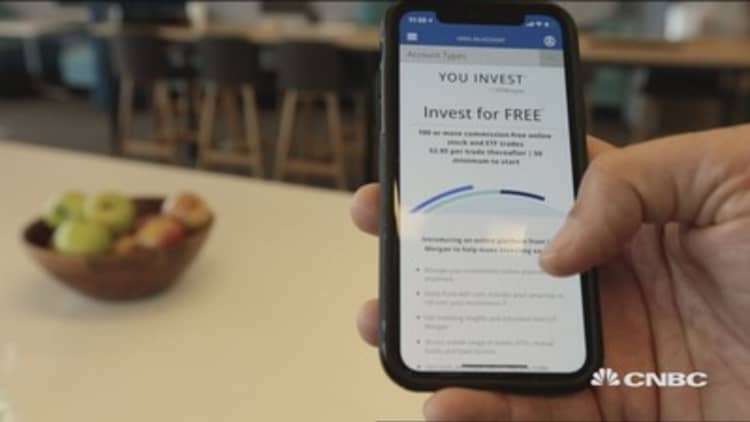Popular no-fee trading app Robinhood is ushering hundreds of global company stocks onto its platform, as firms such as J.P. Morgan vie to compete using the same no-fee model.
The Menlo Park, California-based start-up announced Tuesday that it is adding 250 American depositary receipts of companies from Japan, China, Germany, the U.K. and Canada. They will be available to trade on the app starting Tuesday, and ADRs of companies from France will be added in the coming months. It is the biggest addition of securities since the platform launched three years ago.
"We looked at what customers were searching for and not getting," Robinhood co-founder Vlad Tenev told CNBC. "It allows customers to get some exposure outside of the U.S."
The company discovered its users wanted access to global stocks by looking at its own search data. Robinhood's staff has access to what people are typing into the app's search and looking to trade. Names such as Nintendo, Adidas, Burberry, BMW and Heineken continued to pop up. The company used similar reasoning in February when it decided to add cryptocurrency trading after users repeatedly searched for "bitcoin."
"Our strategy has always been listen to the customer and work on building new products to make their lives easier," Tenev said.
American depositary receipts are stocks of foreign companies that trade and settle in the U.S. market in dollars, allowing investors to avoid having to transact in a foreign currency.
Competition in the brokerage industry is heating up with more no-fee options for investors. J.P. Morgan is launching its own commission-fee trading app this week. The banking giant's move intensifies an ongoing price war and move to lower fees in retail brokerage. Shares of Charles Schwab, TD Ameritrade and E-Trade, online brokers that all charge fees, sank after the news of J.P. Morgan's new app.
Tenev said it won't be long until other online brokers are forced to follow J.P. Morgan's lead in abolishing fees altogether.
"Customers are smart. They're beginning to realize it doesn't make sense to pay margins on services that are electronic," Tenev said. "This is inevitable — more and more established financial companies are going to have to lower their fees."

Robinhood is best known for its zero-fee trading platform that rolled out about three years ago. The company also offers ETFs, options and, as of February, cryptocurrency trading. Its users overwhelmingly fall into the "millennial" age category of 18- to 35-year-olds. In May, it surpassed its rival E-Trade Financial and now has a total of 5 million brokerage accounts.
Investors in its latest $363 million fundraising round included Sequoia, Google's venture capital fund Capital G, DST Global and Iconiq, boosting its valuation to $5.6 billion.
While the start-up doesn't charge trading fees, it does charge for premium services.
One is subscription-based Robinhood Gold, which Tenev compared to Amazon Prime. Robinhood also generates interest income from customer assets, the same way a bank does. And it lends cash and stocks and generates interest off that, a fraction of which Robinhood shares with the customer.
J.P. Morgan might eventually need to look out for Robinhood encroaching on its other territory, too.
"We have an ambitious long-term vision to become a full-service financial services company over the next couple of years," Tenev said.


